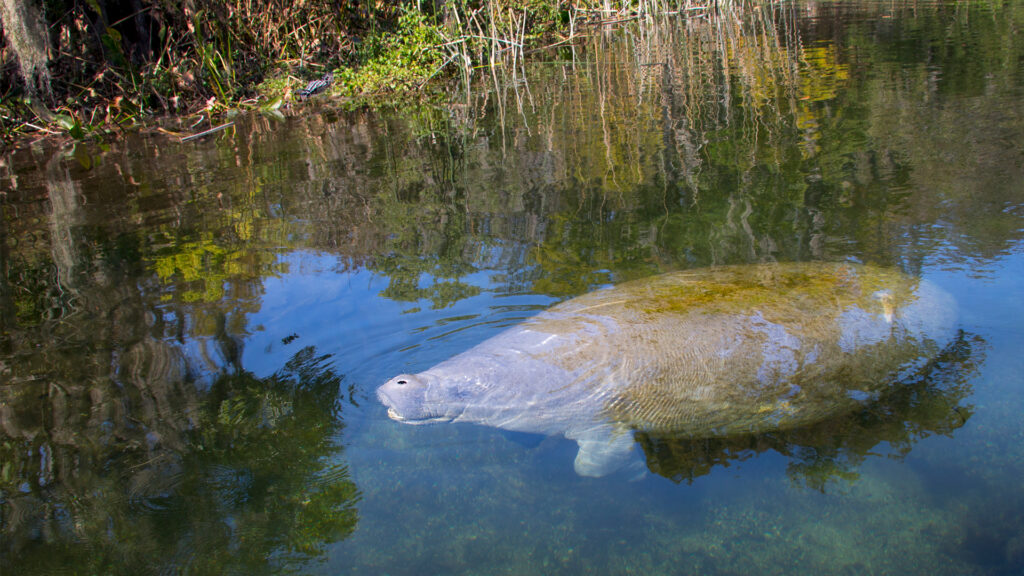By Bill Wellock, Florida State University News
North Florida’s Wakulla Springs long boasted crystal-clear waters that attracted swimmers, kayakers and wildlife enthusiasts eager to see the gators, manatees and other wildlife populating one of the world’s largest freshwater springs.
But in recent years, those waters have turned murky and frequently resembled more of a backyard pond than the beautiful waters that once drew tourists eager to ride in the glass-bottom boats that the state park operated.
Florida State University researchers at the Coastal and Marine Laboratory and the College of Communication and Information are working to change that. Thanks to funding from the Florida Legislature, researchers are embarking on an initiative to educate the public and help clean up the springs.
“Wakulla Springs is a North Florida treasure that we must protect,” said state Rep. Jason Shoaf, who represents Wakulla County and the surrounding area. “I am thrilled that the researchers at FSU are addressing the issues facing the springs and finding solutions so we can continue to enjoy this natural resource.”

The aquifer from which the spring emerges underlies and connects an expansive land area from southern Georgia to Spring Creek Springs, a cluster of submarine springs that emerge off the coast of Spring Creek, Florida. Economically, Wakulla Springs State Park alone contributes about $20 million annually in tourism spending and supports 276 jobs. The underlying cave system and aquifer provide drinking water, crop irrigation and support of downstream fisheries at a value not yet fully documented.
But as the water flows to the springs, it also carries pollution from a variety of sources, including septic tanks, backyard fertilizer and agricultural runoff.
Joel Trexler, director of the Coastal and Marine Laboratory, has designed a project with multiple components to better understand the issues facing the springs and the possible solutions for remediation. Trexler will focus on compiling existing research about the spring as well as conducting new work to address gaps in current knowledge.
“This is a tremendous opportunity, thanks to the support of our lawmakers, to contribute new data supporting efforts to understand what has been affecting the spring and how we can recommend changes that will assist environmental managers working to keep the water clean and clear,” Trexler said.
The College of Communication and Information faculty, led by research faculty member Kellie Keys, will be focused on public outreach. Her team will create an educational video and curriculum for middle school science classes, available free of charge for teachers. She plans to offer public tours of the spring’s watershed from Tallahassee to Wakulla Springs. The funding will also support undergraduate, graduate and postdoctoral students whose studies align with the work.
“People may not realize the springs come from the same source as our drinking water — the aquifer beneath our feet,” Keys said. “So, we hope through this process that we can educate more people on how important the springs are and why this work to clean up the water is so important.”
Banner photo: The evening sky over Wakulla Springs State Park outside Tallahassee (iStock image). This piece was originally published at https://news.fsu.edu/news/science-technology/2024/09/17/fsu-researchers-work-to-protect-local-springs/.
Sign up for The Invading Sea newsletter by visiting here. If you are interested in submitting an opinion piece to The Invading Sea, email Editor Nathan Crabbe at nc*****@*au.edu.



